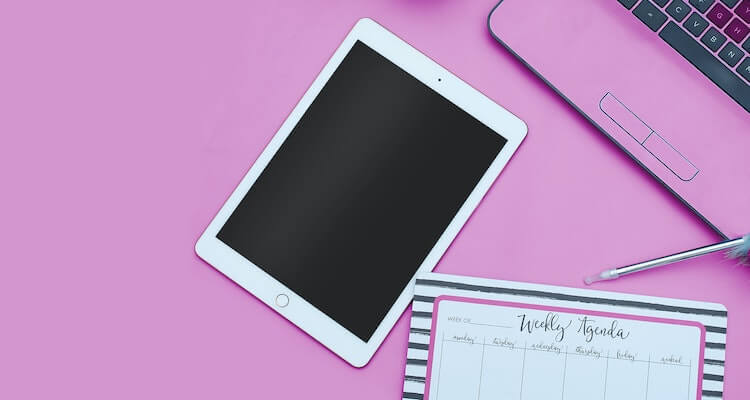Here’s How You Can Protect Yourself While Using Reproductive Health Apps
Whether you keep or delete your apps, there are steps you need to take to keep your data private.

When the United States Supreme Court overturned the right to abortion in June 2022, activists, advocates, and people who can get pregnant became fearful for their rights.
There was speculation about whether or not to delete period-tracking apps. After all, these apps collect, store, and sometimes sell your information to third parties per their terms and conditions.
How these apps are handling your data
Apps you download can use your data to make a profit, especially if the apps themselves are free. A few ways apps typically use your data are:
- Collecting and storing
- Sharing your data with third parties (such as companies it wishes to sell the data to)
- Marketing products and services to you
- Tailoring your experiences within an app
The fine print, aka terms and conditions, often explain whether or not an app will collect your information and how they will use it. Sadly, period apps tend to be some of the least secure.
An investigation by Mozilla found that 10 period trackers and 10 pregnancy apps were very insecure. Some of their more worrying practices included:
- Allowing weak passwords
- Collecting large amounts of data
- Unclear terms and conditions about the potential for collaborating with authorities
In 2019, Flo, a popular period-tracker, was found to have shared sensitive data with firms such as Google and Facebook. Data shared included dates of the user’s periods and potential pregnancy plans.
RELATED READ: Top Period Tracking Apps–Ranked by Privacy Settings
Where the real risks lie
According to The Cut, a mother and daughter from Nebraska are being charged because of an alleged at-home abortion. The daughter, then 17-years-old, said she’d given birth to a stillborn baby and told her mother. They allegedly put the remains in a bag and buried the body with the aid of a 22-year-old man.
Detectives were then able to get a warrant for Facebook messages that allegedly prove the mother, Jessica Burgess, was able to procure abortion pills for her daughter, Celeste Burgess. The abortion occurred more than 20 weeks after conception, and Jessica Burgess is facing up to 5 criminal charges for assisting her daughter.
This case illustrates why reproductive health activists have sounded the alarm about the right to an abortion has continued to come under threat in the United States.
Though reproductive health apps were uninvolved, the fact that messages were used as evidence is seen as proof that people who can get pregnant need to take measures to better protect themselves in this political climate.
If you want to keep tracking your reproductive health
Find apps that don’t sell your data
One such app is Euki, created by Women Help Women.
Read the terms and conditions
Always read the terms and conditions before installing an app on your device. This will help you know how the app uses the data they collect.
Look for clues that an app has weak security
Accepting weak passwords, past data breaches, and negative reviews from other users can provide information you can use to make a wise decision.
Try going offline
One example is the calendar method. This involves simply circling dates on a paper calendar for when you’re on your period. You should see a pattern emerge after a few months.
If you decide to delete your account, you’ll need to contact the company to remove your data
Deleting reproductive health apps from your phone will only prevent you from adding new information, but it doesn’t mean the app’s creator no longer has your old data.
Users can contact an app’s creator and request that this data is formally removed from their system. According to the Washington Post, some states have privacy laws requiring apps to honor this type of request. These include California, and will also include Virginia and Colorado in 2023.
Due to pressure from these laws, some major companies are already preemptively honoring data deletion requests. Per Washington Post, Uber, Twitter, and Spotify, are among them.
Keep in mind that data deletion is a new right and may not work perfectly even in states that have enacted laws to protect consumers. Private tech companies, including apps meant to help people monitor their health, may still use the lack of privacy protection laws to neglect your request or decide not to delete your data.
Still, it never hurts to ask given the current climate.
Image sources: Adrienne Andersen

















